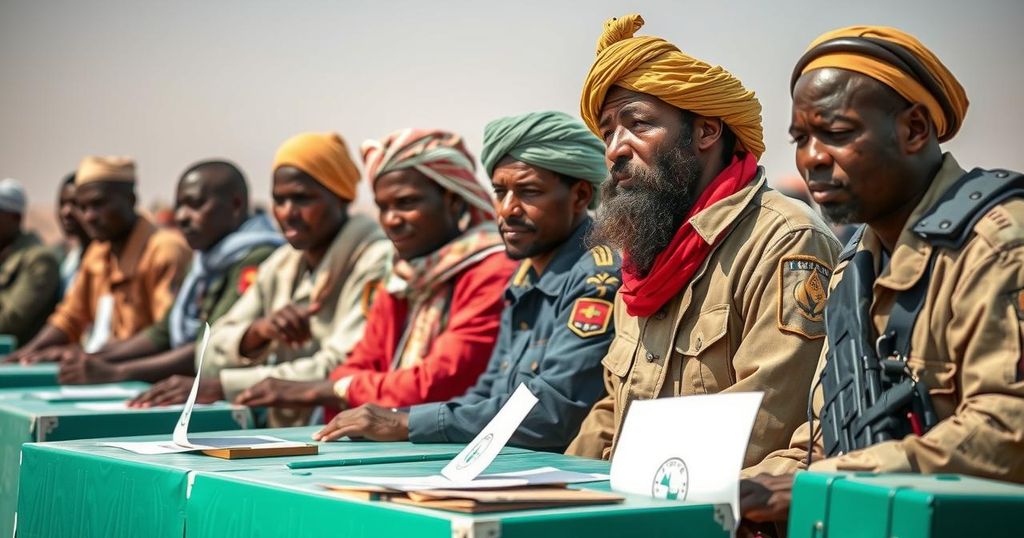Chad’s Military and Nomads Participate in Controversial General Elections

Chad’s military and nomads voted in general elections viewed as a step toward democracy, despite opposition calls for a boycott. Initial turnout was approximately 45 percent among the nomads and military personnel, who seek improvements in living conditions due to climate change. The elections occur during heightened security concerns and political tensions following the end of a military accord with France.
On Saturday, members of Chad’s military and various nomadic tribes participated in general elections, deemed by President Mahamat Idriss Deby Itno as pivotal for the country’s transition to democracy. However, opposition parties have dismissed these elections as mere formalities, calling for a boycott. Despite this, initial reports indicated that approximately 45 percent of the 200,000 nomads, alongside 45,000 soldiers, exercised their voting rights. The military personnel voted freely, and nomads expressed their desire for elected officials to prioritize improvements in their living conditions, which have been severely impacted by climate change. These elections occur amidst ongoing security concerns, particularly from Boko Haram, and political tensions following the end of a military agreement with France.
Chad has a fraught history of political instability, characterized by long-standing authoritarian rule. The recent rise to power of President Mahamat Idriss Deby Itno, following the death of his father, has been marked by a promise of democratic reforms. However, opposition parties have frequently accused his administration of facilitating undemocratic practices. The populace has not voted for a legislative body since 2011, with elections postponed multiple times due to security threats and other crises, thus intensifying the significance of these elections.
The ongoing elections in Chad, while presented as a step towards democracy, are marred by opposition boycotts and allegations of undemocratic practices. Members of the military and nomadic tribes, however, have actively participated, indicating a complex interplay of public sentiment and political realities. The outcome of these elections will be a crucial determinant of Chad’s political landscape amid harrowing economic and environmental challenges.
Original Source: www.barrons.com







